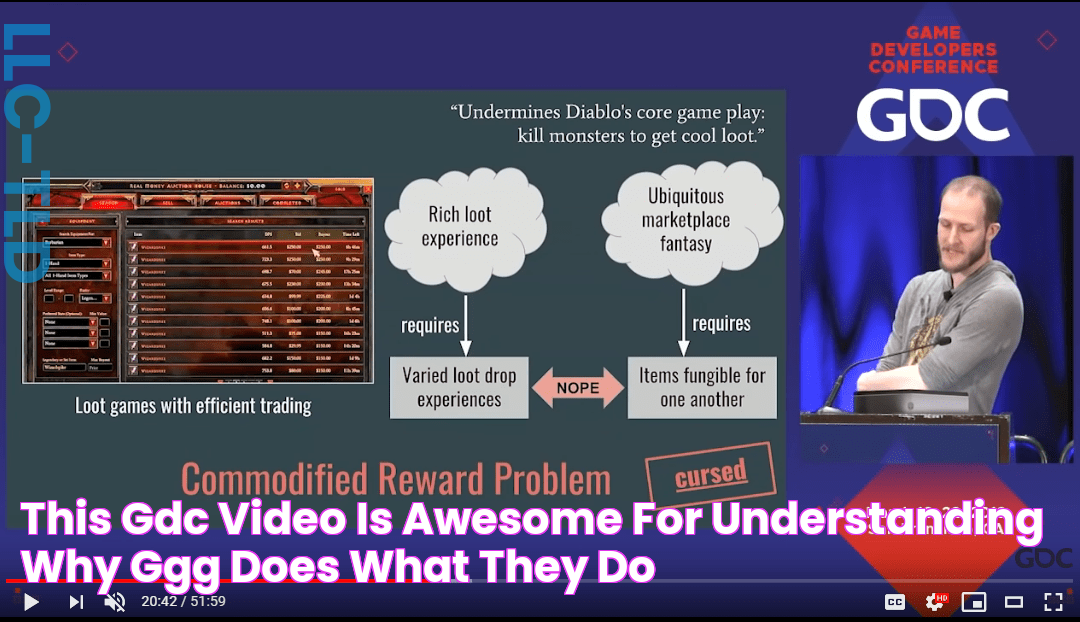Understand The True Meaning Of "GGG" In Gaming: An Ultimate Guide
ggg meaning gaming is a term used to describe the practice of playing video games. It can be used as a noun, verb, or adjective. As a noun, it refers to the act of playing video games. As a verb, it means to play video games. As an adjective, it describes something related to video games.
Gaming has become a popular pastime for people of all ages. There are many different types of video games available, from action-packed shooters to relaxing puzzle games. Gaming can be a great way to relieve stress, have fun, and socialize with friends.
The history of gaming dates back to the early days of computers. In the 1950s, scientists developed simple text-based games as a way to test the capabilities of early computers. In the 1970s, the first arcade games were developed, and in the 1980s, home video game consoles became popular.
Read also:The Definitive Guide To Leonardo Dicaprios Age From Boyhood To Stardom
ggg meaning gaming
Gaming, in the context of "ggg meaning gaming," encompasses various key aspects that define its essence and significance.
- Entertainment: Gaming primarily serves as a source of leisure and enjoyment.
- Competition: It fosters a spirit of rivalry and challenges players' skills.
- Socialization: Gaming facilitates interaction and community building among players.
- Education: It can be an educational tool, enhancing cognitive abilities and problem-solving.
- Art form: Gaming transcends entertainment and can be considered a form of artistic expression.
- Industry: It has evolved into a major industry, generating revenue and employment opportunities.
These aspects collectively contribute to the multifaceted nature of gaming, making it an integral part of modern culture. From casual entertainment to competitive esports, from educational simulations to immersive storytelling, gaming continues to captivate and engage audiences worldwide.
1. Entertainment
This aspect lies at the core of "ggg meaning gaming," as it captures the fundamental purpose of gaming as a leisure activity. Gaming provides an escape from daily routines, offering relaxation, amusement, and a sense of accomplishment. It caters to diverse preferences, from casual mobile games to immersive console experiences, fulfilling the entertainment needs of a wide audience.
The entertainment value of gaming stems from its ability to engage players on multiple levels. Games challenge players' skills, stimulate their creativity, and immerse them in captivating narratives. Whether it's the thrill of overcoming obstacles, the satisfaction of solving puzzles, or the joy of collaborating with others, gaming offers a rich and rewarding entertainment experience.
Understanding this connection is crucial for appreciating the significance of gaming in contemporary society. As a form of entertainment, gaming has become an integral part of our cultural landscape, shaping social interactions, influencing popular culture, and providing a shared language among people from all walks of life.
2. Competition
This facet of "ggg meaning gaming" highlights the competitive nature of gaming, where players engage in friendly or intense rivalry to showcase their abilities and strive for victory.
Read also:Indulge In The Distinct Flavor Discover The Unique Taste Of Target Keyword
- Player vs. Player (PvP) Matches:
In PvP games, players directly compete against each other in real-time, testing their skills, strategies, and reflexes. This format fosters a sense of rivalry and encourages players to improve their gameplay to outmaneuver their opponents.
- Leaderboards and Rankings:
Many games feature leaderboards or ranking systems that track players' performance and progress. These rankings create a competitive environment where players strive to climb the ladder, showcasing their dominance and earning recognition within the gaming community.
- Esports and Professional Gaming:
Competitive gaming has evolved into a global phenomenon, with professional esports leagues and tournaments attracting millions of viewers. In this highly competitive arena, top players from around the world battle for glory, fame, and substantial prize pools.
- Skill-Based Matchmaking:
Modern games often employ skill-based matchmaking systems that pair players of similar skill levels together. This ensures fair competition, allowing players to challenge themselves against worthy opponents and experience a sense of progression as they improve.
The competitive aspect of gaming not only adds excitement and challenge but also contributes to its popularity as a spectator sport. Esports competitions captivate audiences with their high-stakes matches, strategic gameplay, and skilled performers.
3. Socialization
In the realm of "ggg meaning gaming," socialization plays a significant role in enhancing the overall gaming experience and fostering a sense of community among players.
- Multiplayer Gaming:
Multiplayer games allow players to interact and collaborate in real-time, fostering a sense of camaraderie and shared purpose. Players can form teams, coordinate strategies, and communicate with each other, building meaningful connections in the virtual world.
- Guilds and Clans:
Many games feature guilds or clans, which are player-created groups that provide a sense of belonging and support. Guild members can engage in cooperative activities, share resources, and participate in organized events, strengthening their bonds and creating a social framework within the game.
- Social Events and Tournaments:
Game developers often host social events and tournaments that bring players together outside of the traditional gameplay environment. These events provide opportunities for players to meet face-to-face, engage in friendly competition, and share their passion for gaming.
- Virtual Communities and Forums:
Gaming also extends beyond the game itself, with many players engaging in discussions and sharing experiences on online forums, social media groups, and dedicated websites. These virtual communities foster a sense of belonging and allow players to connect with others who share their interests.
The socialization aspect of gaming not only enriches the gameplay but also contributes to the overall well-being of players. By providing opportunities for social interaction, collaboration, and community building, gaming fosters a sense of connection and belonging, which can have positive implications for players' social and emotional development.
4. Education
Within the realm of "ggg meaning gaming," the educational facet highlights the potential of games to transcend mere entertainment and serve as valuable educational tools. Games can engage players in immersive and interactive learning experiences that foster cognitive development and problem-solving skills.
- Cognitive Development:
Games often require players to think strategically, make quick decisions, and adapt to changing scenarios. This active engagement challenges players' cognitive abilities, improving their attention, memory, and critical thinking skills.
- Problem-Solving Skills:
Many games present players with puzzles, challenges, and obstacles that require creative problem-solving. By experimenting with different approaches and learning from their mistakes, players develop their problem-solving abilities and perseverance.
- Learning Complex Concepts:
Educational games can be particularly effective in teaching complex concepts in a fun and engaging way. For example, games can simulate scientific experiments, historical events, or mathematical principles, allowing players to learn through interactive experiences.
- Collaboration and Communication:
Multiplayer games encourage players to collaborate and communicate with each other to achieve common goals. This promotes teamwork, communication skills, and the ability to negotiate and resolve conflicts.
The educational value of games is increasingly recognized, with educators and researchers exploring innovative ways to incorporate games into . By harnessing the power of engagement, interactivity, and problem-solving, games can supplement traditional teaching methods and enhance the learning experience for students of all ages.
5. Art form
Within the realm of "ggg meaning gaming," the recognition of gaming as an art form elevates its significance beyond mere entertainment. Games have evolved into immersive and interactive experiences that captivate players with their captivating narratives, stunning visuals, and thought-provoking themes.
The artistic value of games lies in their ability to evoke emotions, challenge perspectives, and inspire creativity. Through interactive storytelling, games allow players to embody characters, explore virtual worlds, and make choices that shape the narrative. This level of engagement and immersion enables games to convey powerful messages, raise awareness about important issues, and provoke introspection.
Moreover, the visual and auditory elements of games are crafted with meticulous care, creating stunning and immersive experiences. Game developers employ advanced graphics, lighting techniques, and sound design to transport players into believable and captivating worlds. The artistic expression in games is not limited to their aesthetics; it extends to the design of gameplay mechanics, which can be innovative, challenging, and thought-provoking.
Understanding the artistic value of games is crucial for appreciating the full spectrum of "ggg meaning gaming." It transcends the notion of gaming as solely a pastime, recognizing its potential as a medium for artistic expression, storytelling, and cultural commentary. This understanding opens doors to new avenues of exploration and innovation within the gaming industry, encouraging developers to push the boundaries of creativity and deliver transformative gaming experiences.
6. Industry
The rise of "ggg meaning gaming" has significantly contributed to the growth and evolution of the gaming industry, leading to the creation of revenue streams and employment opportunities on a global scale.
- Game Development and Publishing:
The development and publishing of video games is a major component of the gaming industry. Game developers create and design games, while publishers handle marketing, distribution, and sales. This facet generates revenue through game sales and in-game purchases.
- Esports and Competitive Gaming:
Esports, or competitive video gaming, has become a significant revenue generator within the industry. Professional gamers compete in organized tournaments for prize pools and sponsorships, attracting a large audience of viewers and fans.
- Gaming Hardware and Accessories:
The production and sale of gaming hardware, such as consoles, controllers, and gaming PCs, is another major revenue stream. Manufacturers cater to the growing demand for high-performance gaming equipment.
- Merchandise and Licensing:
Popular games often generate revenue through merchandise and licensing agreements. This includes the sale of branded apparel, toys, and other products, as well as the licensing of game characters and storylines for use in other media.
In addition to revenue generation, the gaming industry has also created numerous employment opportunities. Game developers, designers, artists, programmers, and marketing professionals are just a few of the roles that contribute to the success of this industry.
FAQs on "ggg meaning gaming"
This section addresses frequently asked questions and misconceptions surrounding "ggg meaning gaming," providing concise and informative answers.
Question 1: What exactly does "ggg meaning gaming" refer to?
Answer: "ggg meaning gaming" is a term used to describe the practice of playing video games. It encompasses various aspects, including entertainment, competition, socialization, education, artistic expression, and its evolution into a major industry.
Question 2: Is gaming only meant for entertainment purposes?
Answer: While entertainment is a significant aspect of gaming, it extends beyond mere amusement. Games can also serve educational purposes, enhance cognitive abilities, foster socialization, and be considered a form of artistic expression.
Question 3: How does gaming contribute to the economy?
Answer: The gaming industry has become a major economic force, generating revenue through game sales, in-game purchases, esports competitions, gaming hardware production, and merchandise licensing.
Question 4: Is gaming addictive and harmful?
Answer: While excessive gaming can be a concern, it is essential to recognize that gaming itself is not inherently addictive or harmful. Moderate gaming can provide entertainment, cognitive benefits, and social connections.
Question 5: Is gaming only suitable for children and teenagers?
Answer: Gaming appeals to people of all ages, offering various experiences and genres tailored to different preferences. Many games are designed specifically for adult audiences, providing complex narratives, strategic challenges, and immersive experiences.
Question 6: How can gaming be used for educational purposes?
Answer: Educational games can engage players in interactive learning experiences, fostering problem-solving skills, cognitive development, and the understanding of complex concepts in a fun and accessible way.
Summary: "ggg meaning gaming" encompasses the diverse aspects of gaming, recognizing its entertainment value, educational potential, social impact, artistic expression, and economic significance. Understanding these facets provides a comprehensive perspective on the multifaceted nature of gaming in contemporary society.
Transition: This FAQ section has addressed common questions about "ggg meaning gaming." The following section will delve deeper into the history and evolution of gaming, exploring its origins, technological advancements, and cultural impact.
Tips Related to "ggg meaning gaming"
To enhance your gaming experience, consider these practical tips:
Tip 1: Explore Different Genres and Platforms:
The gaming landscape offers a vast array of genres, from action-packed shooters to immersive role-playing games. Experiment with diverse genres and platforms to discover what truly resonates with your preferences and interests.
Tip 2: Prioritize Comfort and Ergonomics:
Extended gaming sessions require attention to comfort and ergonomics. Invest in a supportive gaming chair, adjust your monitor to an optimal viewing angle, and take regular breaks to prevent physical strain.
Tip 3: Engage with the Gaming Community:
Connect with other gamers through online forums, social media groups, and gaming communities. Share experiences, discuss strategies, and forge friendships with fellow enthusiasts.
Tip 4: Leverage Technology to Enhance Gameplay:
Modern gaming offers a range of technological advancements. Utilize high-performance hardware, gaming peripherals, and software to optimize your gameplay experience and immerse yourself fully in virtual worlds.
Tip 5: Maintain a Balanced Approach:
While gaming can be highly engaging, it's crucial to maintain a balanced approach. Set limits on gaming time, engage in other activities, and prioritize real-world responsibilities to avoid excessive play.
Tip 6: Utilize Gaming for Personal Growth:
Gaming can provide opportunities for personal growth. Identify games that challenge your cognitive abilities, promote problem-solving skills, or foster creativity. Engage with games that offer educational or social benefits.
Tip 7: Stay Informed About Industry Trends:
The gaming industry is constantly evolving. Keep yourself updated on the latest technological advancements, game releases, and industry news to stay at the forefront of gaming trends.
Tip 8: Respect the Gaming Community:
Foster a positive and respectful gaming environment. Be mindful of your interactions with other players, avoid toxic behavior, and promote fair play. Remember that gaming should be an enjoyable and inclusive experience for all.
Summary: By incorporating these tips into your gaming habits, you can enhance your overall experience, discover new dimensions of enjoyment, and reap the potential benefits that gaming has to offer.
Transition: The insights provided in this article have shed light on the multifaceted nature of "ggg meaning gaming." As we conclude, it's important to recognize the evolving landscape of gaming and its continued impact on entertainment, technology, and our daily lives.
Conclusion
The exploration of "ggg meaning gaming" reveals the multifaceted nature of gaming in contemporary society. It encompasses entertainment, competition, socialization, education, artistic expression, and economic significance. This multifaceted nature highlights the deep integration of gaming into our lives, shaping entertainment, culture, and even the global economy.
As technology continues to advance and gaming becomes more accessible, we can expect the impact of "ggg meaning gaming" to continue to grow. Gaming will likely play an increasingly important role in education, social interaction, and artistic expression. It is essential to embrace the transformative potential of gaming while addressing potential concerns and promoting responsible gaming practices.
Unveiling The Magic: Exploring Curling Wands And Their Transformative Effects
Discover The Best Independent Luxury Senior Living In Tempe
Discover The Legacy Of Maureen O'Sullivan's Children: Their Stories Untold


